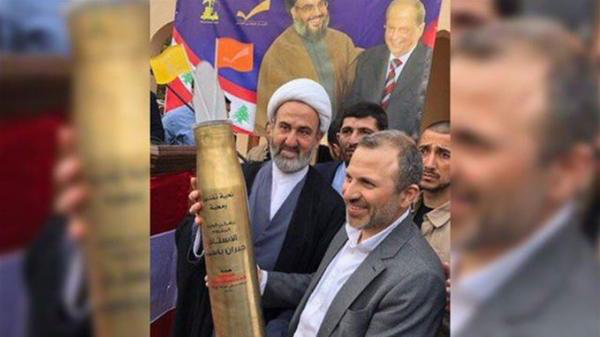BEIRUT: Frustration mounted in Lebanon on Sunday amid continuing paralysis in the formation of a new government, with fingers pointed at the Iran-backed Hezbollah group and Free Patriotic Movement leader Gebran Bassil as the source of the blockage.
Eleven days after former prime minister Saad Hariri was asked to resume office and assemble an administration of non-party technocrats, no date has even been set for a meeting with President Michel Aoun.
“We do not know if the obstructing parties actually want to form a government. It is about party quotas again, regarding the number of ministers and the rotation of portfolios,” senior Hariri adviser Hussein Al-Wajh told Arab News.
Dr. Mustafa Alloush, a leading figure in Hariri’s Future Movement, told Arab News: “The main obstacle to forming a government is Gebran Bassil, who has returned to his old demands.”
Hariri resigned as prime minister in October 2019 amid a wave of public protests over financial corruption, government ineptitude and a collapsing economy. Neither of his successors, Hassan Diab and Mustapha Adib, was able to restore stability, and Lebanon has been without a government since September.
At the prompting of French President Emmanuel Macron, Hariri offered to lead a technocratic Cabinet in an initiative seen as opening the door to desperately needed international aid and a bailout from the International Monetary Fund.
Former minister Ahmed Fatfat told Arab News: “Hariri’s project is a mini-government of specialists, which would not be against anyone or against the country, but Hezbollah stands behind the play of Gebran Bassil.”
Health chiefs fear the government stalemate is compromising Lebanon’s ability to combat the spread of the coronavirus, which has infected more than 80,000 people and killed 637. Caretaker Interior Minister Mohammed Fahmy on Sunday rejected a recommendation by the government’s National Health Committee for a national lockdown, and instead imposed restrictions in 115 towns.
The head of the Doctors Syndicate, Sharaf Abu Sharaf, called for a “complete shutdown similar to the one that took place at the beginning of the virus outbreak.”
He said: “The capacity of hospitals to absorb patients has reached its limit, and the health, recovery and financial situation is very poor. The medical and nursing sector is witnessing a large migration out of Lebanon, and there are no incentives to persuade them to stay.”





















